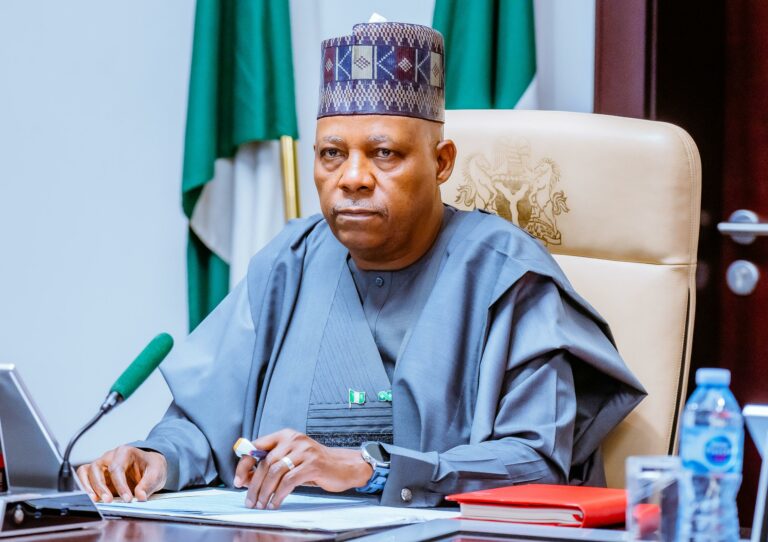
Vice President Kashim Shettima has announced that the Federal Government plans to plant 20 billion trees during the next rainy season as part of a sweeping national reforestation and environmental sustainability strategy.
Shettima made the disclosure on Saturday during a state visit to Ethiopia, where he toured various agricultural and industrial facilities, including Adama Dairy Farms, Luke Avocado Nursery, Shera Dibandiba Mojo Family Integrated Farm, Biyyo Poultry Farm, and Bishoftu Pea Farm. The visit is aimed at strengthening bilateral cooperation in agriculture and industrial development.
Central to the tour was Shettima’s participation in the launch of Ethiopia’s Green Legacy Initiative—a continental model for integrating climate action with economic transformation. He described the programme as a dual-purpose initiative that promotes environmental restoration while creating employment opportunities.
“We intend to plant 20 billion trees in the next rainy season,” the Vice President stated. “It will require meticulous planning, substantial energy, and national mobilization—similar to what Ethiopia has achieved with remarkable success.”
Shettima praised Ethiopia’s proactive leadership in environmental regeneration and economic transformation, hailing the country as a “pathfinder for Africa’s renaissance.”
“I was overwhelmed with joy witnessing a real economic awakening. Ethiopia has taken the lead in reclaiming Africa’s pride. Its success will echo across East and Southern Africa,” he said.
The Vice President also acknowledged Ethiopia’s remarkable feat in achieving wheat self-sufficiency—transitioning from importing over $1 billion in wheat annually to becoming a net exporter to neighboring countries such as Djibouti and Kenya.
“If Nigeria and Ethiopia work, Africa will work,” Shettima declared. “Together, we represent over 350 million people—more than the population of the United States. We must align our development goals to secure the future of our continent.”
Also speaking, Dr. Kingsley Uzoma, Senior Special Assistant to the President on Agribusiness and Productivity Enhancement, described the visit as “phenomenal,” noting that President Bola Tinubu is committed to replicating Ethiopia’s successful agricultural model in Nigeria.
“President Tinubu has deep respect for the Ethiopian people. Our mission here is to learn and report back actionable insights. I am confident he will replicate these reforms on an even larger scale,” Uzoma said.
He added that Nigeria is actively pursuing economic diversification strategies aimed at reducing dependence on oil revenues by scaling up agricultural exports—including avocado, pineapple, mango, cashew, and cocoa.
The ambitious tree-planting initiative aligns with Nigeria’s broader climate agenda and affirms the administration’s resolve to deliver sustainable development while addressing the global climate crisis.







